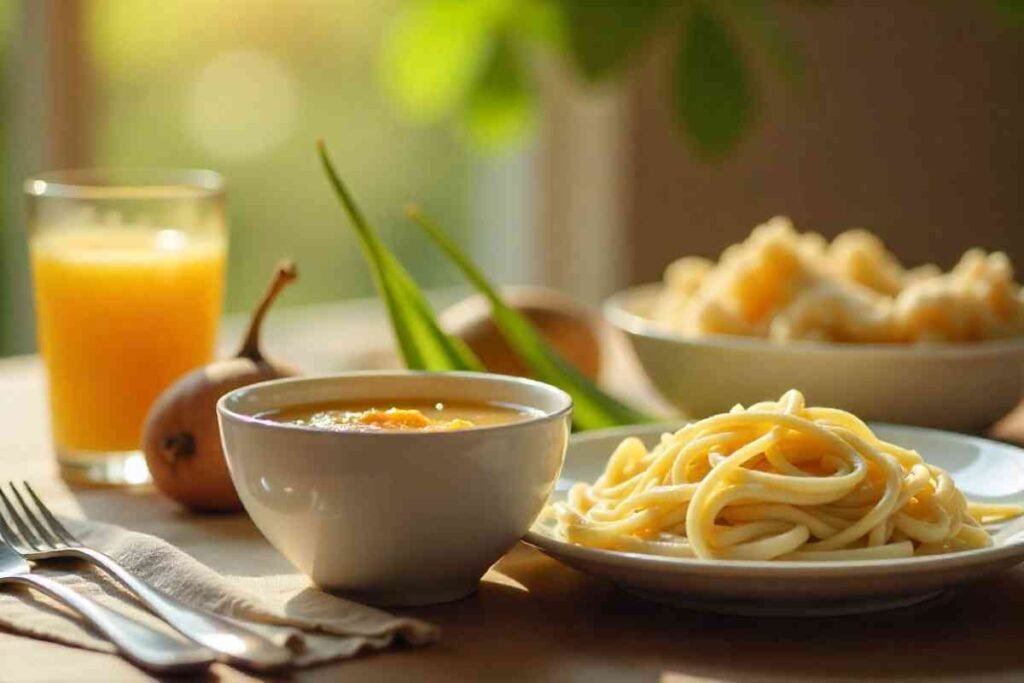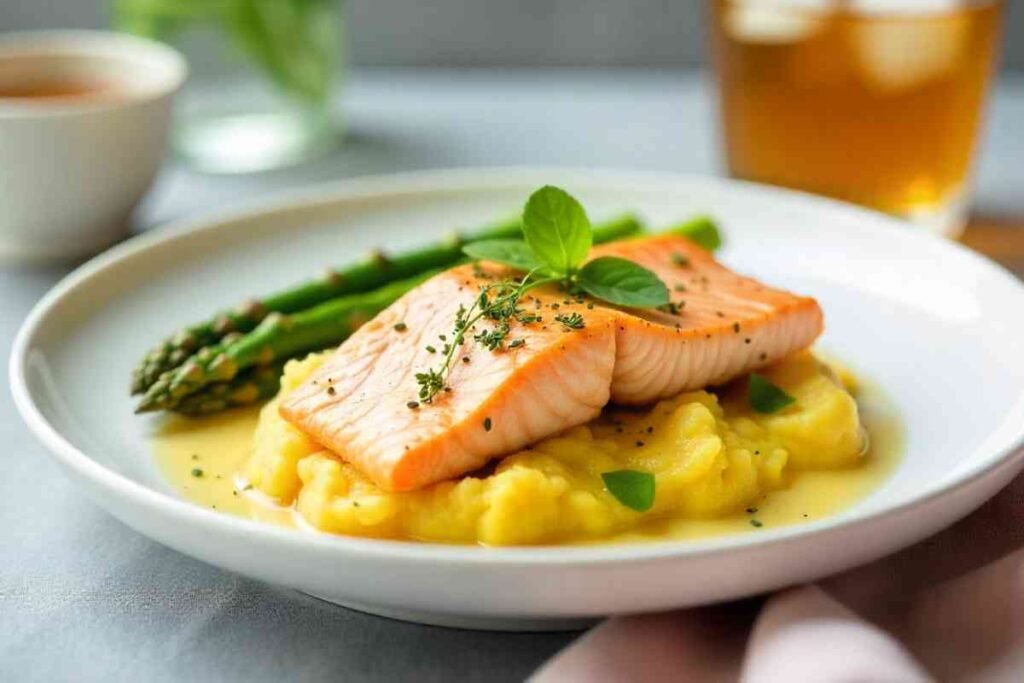A Fistula Diet focuses on foods that support healing and reduce inflammation.Fiber protein and nutrients help manage symptoms and improve digestive health.
Avoid spicy oily and processed foods eat fresh fruits vegetables and lean proteins.Proper hydration and nutrient rich meals promote faster healing.
This diet helps you take control of your recovery through mindful eating.Read on for practical tips meal ideas and expert advice for relief.
Understanding Anal Fistula and Its Impact on Digestion

Anal fistulas typically form when small glands inside the anus become clogged and infected resulting in abscesses. Over time these abscesses may form abnormal tunnels connecting the anal canal to the skin.
Symptoms include pain discomfort discharge and in some cases bleeding during bowel movements. While surgical intervention is often necessary dietary management is essential to prevent further irritation and support smooth digestion.
The Fistula diet focuses on foods that soften stool reduce straining during bowel movements and maintain gut health. Avoiding certain foods that trigger inflammation or constipation is equally important to prevent flare ups and complications.
Importance of a Fistula Friendly Diet
A proper Fistula diet serves multiple purposes. Firstly it ensures regular bowel movements which are crucial to avoid irritation of the fistula site.
Secondly a fiber rich diet supports gut health preventing constipation and promoting healing. Thirdly maintaining hydration helps lubricate the intestines and eases stool passage.
Finally avoiding inflammatory foods reduces discomfort and minimizes the risk of recurrent infections.By adopting a well balanced diet, patients can complement medical treatments and surgical procedures leading to faster recovery and improved quality of life.
Best Foods for a Fistula Diet
Best foods for a fistula diet focus on soft fiber rich meals that support smooth digestion and healing. Choosing easily digestible fruits vegetables and whole grains helps reduce discomfort and promote recovery.
High Fiber Cereals and Grains
Cereals like broken wheat quinoa oats and brown rice are packed with fiber that promotes healthy digestion. Fiber adds bulk to stools making bowel movements smoother and less straining.
Regular consumption of whole grains also supports long term digestive health and reduces constipation which is crucial for fistula patients.
Pulses and Legumes
Pulses including moong dal chickpeas kidney beans masoor dal and soybeans are excellent sources of both protein and fiber.
They help maintain a clear digestive tract and provide essential nutrients. By promoting smooth bowel movements pulses prevent additional strain and discomfort around the fistula site.
Fresh Fruits and Vegetables
Fruits such as apples pears berries bananas and avocados provide natural fiber and antioxidants. Green leafy vegetables like spinach kale cabbage and lettuce supply essential vitamins minerals and fiber. Together these foods help reduce inflammation maintain gut health and promote easy digestion.
Coconut
Coconut meat is rich in fiber and medium chain fatty acids which are easier to digest than animal fats. Regular consumption can help maintain regular bowel movements while supporting overall digestive health. Coconut water is also a natural hydrator aiding stool softness and preventing dehydration.
Fish and Omega 3 Fatty Acids
Fish such as salmon mackerel and tuna are rich in omega 3 fatty acids which support intestinal health by lubricating the gastrointestinal system and promoting regular fecal flow. Omega 3s also have anti inflammatory properties which may reduce irritation and promote healing.
Probiotics and Fermented Foods
Probiotics found in yogurt kefir kimchi and sauerkraut replenish good bacteria in the gut. They improve digestion reduce inflammation and support a balanced microbiome which is essential for managing fistula symptoms effectively.
Hydration
Water is a fundamental component of a Fistula diet. Drinking at least 8 glasses of water daily softens stool and prevents straining.
Other hydrating beverages like carrot juice cabbage juice lassi and pineapple juice also support digestion while providing essential nutrients.
Foods to Avoid in a Fistula Diet
Foods to avoid in a fistula diet are those that can irritate the digestive tract and slow down healing. Limiting spicy oily and processed foods helps reduce discomfort and supports faster recovery.
Spicy and Acidic Foods
Spicy dishes chili powders and acidic foods can irritate the anal canal and increase pain bleeding or discomfort. Patients should focus on simple homemade meals with minimal spices to ensure digestive comfort.
Fried and Fatty Foods
Deep fried snacks like samosas fries and fried chicken contain unhealthy fats and low fiber which contribute to constipation and worsen fistula symptoms. Avoiding these foods helps maintain smooth bowel movements.
Red Meat
Red meat is low in fiber and difficult to digest offering little bulk for stools. Excessive consumption especially when fried or heavily spiced can exacerbate constipation and discomfort.
Sugary and Processed Foods
Sugary foods slow digestion leading to bloating and irregular bowel movements. Pre packaged snacks frozen meals and items with corn syrup should be avoided for optimal digestive health.
Alcohol and Caffeine
Alcohol dehydrates the body making stool harder and more difficult to pass. Caffeine especially in strong coffee or heavy milk tea can irritate the gastrointestinal tract and should be limited until symptoms subside.
High Fat Dairy Products
Full fat milk cheese and cream are harder to digest and may cause bloating constipation or stomach discomfort. Opt for low fat or skimmed alternatives to maintain gut health.
Salty Foods
Excessive salt can lead to bloating making bowel movements more difficult. Limiting salt intake is important for comfort and to prevent additional gastrointestinal irritation.
Practical Tips for Following a Fistula Diet
- Eat small frequent meals throughout the day to reduce digestive strain.
- Prioritize cooking methods like steaming boiling grilling or baking.
- Include a variety of fiber sources from cereals fruits vegetables and pulses.
- Drink sufficient water before during and after meals to aid digestion.
- Monitor tolerance to specific foods and avoid items that trigger discomfort.
- Include home cooked meals and avoid fast food or pre packaged snacks.
Sample Fistula Friendly Recipes

Sample Fistula Friendly Recipes provide simple nutritious meal ideas that are gentle on digestion. These recipes help support healing while keeping your diet enjoyable and easy to follow.
Lentil and Vegetable Salad
Boil lentils and combine with chopped cucumbers cherry tomatoes and grated carrots. Add lemon juice and a pinch of black pepper for flavor. This high fiber nutrient rich salad promotes healthy digestion.
Chicken and Chickpea Bowl
Boil chicken breasts and chickpeas then mix with boiled corn and shredded vegetables. Add a light dressing of olive oil lemon juice and mild herbs. This provides protein fiber and essential nutrients without irritating the gut.
Hummus and Vegetable Sandwich
Prepare a smooth chickpea hummus and spread it on whole wheat or multigrain bread. Add sliced bell peppers cucumbers and carrots. This sandwich offers fiber vitamins and minerals in a digestible form.
Lifestyle Tips to Complement a Fistula Diet
- Engage in light physical activity like walking to promote intestinal motility.
- Practice proper hygiene around the anal area to prevent infections.
- Manage stress as it can impact digestion and exacerbate symptoms.
- Follow your doctor’s advice on medications probiotics and supplements.
Start your Fistula diet today and take the first step toward faster healing better digestion and lasting relief.
You can explore the articles below and get more helpful information directly from our website.
Aval Health Benefits for Daily Wellness
Mojito Syrup: Perfect Homemade Guide
Fitoofitness.in Blog: Fitness & Wellness
Conclusion
A Fistula diet plays a vital role in easing symptoms supporting digestion and promoting faster recovery. By focusing on fiber rich foods lean proteins probiotics and proper hydration patients can maintain smoother bowel movements and reduce discomfort.
Avoiding spicy oily and processed foods further prevents irritation and helps protect digestive health. With mindful eating and balanced nutrition this diet not only complements medical treatments but also strengthens long term wellness.
When paired with healthy lifestyle habits like exercise stress control and good hygiene it creates the best path toward healing. Following these steps allows patients to regain comfort confidence and quality of life.
FAQs
What is a Fistula diet and why is it important?
A Fistula diet is a specialized eating plan designed to reduce inflammation, soften stools, and support healing. It helps ease digestion, prevent constipation, and reduce discomfort during recovery.
Which foods are best for a Fistula diet?
Fiber-rich foods like whole grains, pulses, fruits, and vegetables are best for a Fistula diet. They keep bowel movements smooth while providing essential nutrients that promote healing.
What foods should be avoided in a Fistula diet?
Patients should avoid spicy, oily, fried, and processed foods as they can irritate the digestive tract. Red meat, alcohol, and high-fat dairy also slow digestion and worsen symptoms.
Can drinking water help with fistula recovery?
Yes, proper hydration is essential as it softens stools and prevents straining during bowel movements. Drinking at least 8 glasses of water daily supports smooth digestion and healing.
Are probiotics useful for fistula patients?
Probiotics found in yogurt, kefir, and fermented foods restore healthy gut bacteria. They improve digestion, reduce inflammation, and help manage fistula-related discomfort.
Can I eat meat while on a Fistula diet?
Yes, but it’s best to choose lean proteins like chicken or fish instead of red meat. Fish rich in omega-3s can reduce inflammation and support digestive health.
How do lifestyle changes support a Fistula diet?
Light exercise, stress management, and proper hygiene complement a Fistula diet. These practices improve digestion, prevent infections, and enhance overall recovery.
Can a Fistula diet replace medical treatment?
No, a Fistula diet cannot replace surgery or medical treatment. It works as supportive care, helping reduce symptoms and improving recovery alongside prescribed treatments.